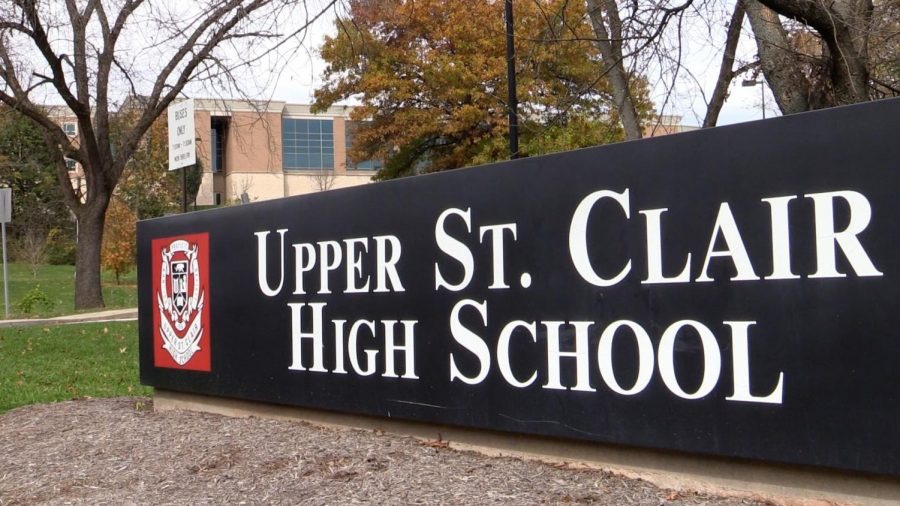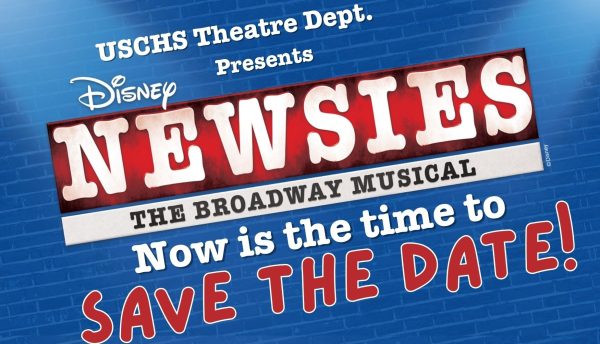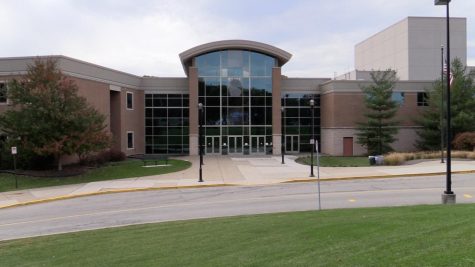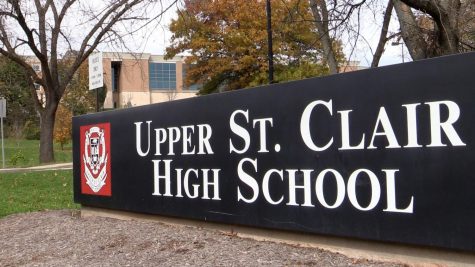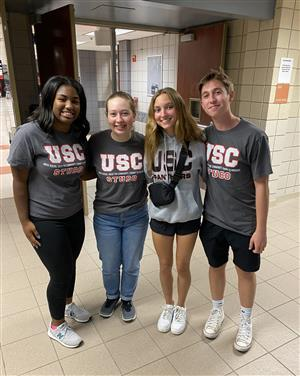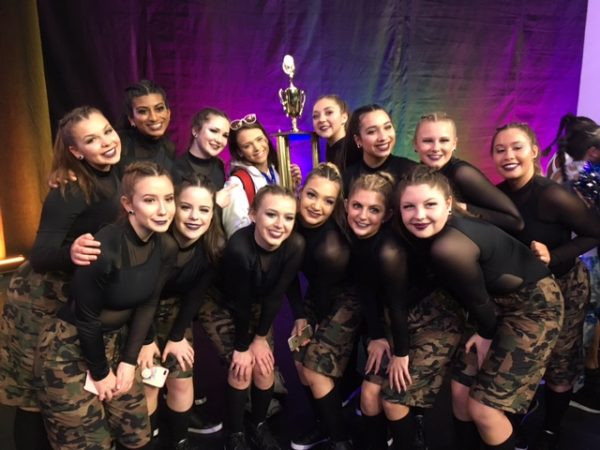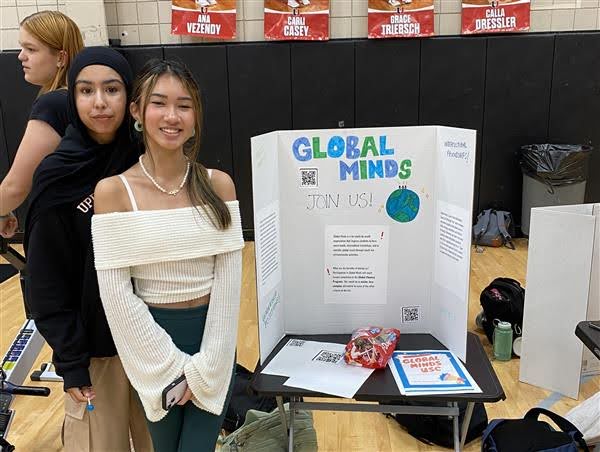Online Education Up and Running at USC
April 15, 2020
While it is relatively early in 2020, the Upper St. Clair community as well as the world has been forced to face unprecedented change and crisis in light of the international outbreak of the coronavirus. Schools have been closed around the world, and as online education becomes the new norm, many Upper St. Clair residents wonder what such a form of education will look like. Dr. Wagner, the principal of Upper St. Clair High School, has, along with school administrators throughout the state, coordinated with the Pennsylvania Board of Education, the Department of Health in Allegheny County, the Allegheny Intermediate Unit, and countless other organizations, both within Pennsylvania and nationwide, to attempt to navigate this difficult time.
Schools across the country and the world have taken various approaches to the process of online education, whether that has included jumping right into instruction or taking time to carefully plan out an effective virtual education strategy. Upper St. Clair pursued the latter of the two approaches, and has undoubtedly organized what will hopefully be an effective way of maintaining students’ education.
Dr. Wagner detailed the lengthy process of organizing online education for Upper St. Clair, which began with coordination across districts. He explained how the process was much more expansive than, for example, connecting with other districts on issues like weather cancellations, since the circumstances are, of course, much more long-term. Dr. Wagner also highlighted the fact that while administrators were beginning to coordinate plans for online education, “in the background there’s an international crisis going on, and so people were also, during that first week, getting reoriented to what was going on in the world.” It was imperative to recognize that families were encountering their own unique situations, parents were facing shifting work-related circumstances, and overall, everyone was working to adapt to an incredibly new environment.
In the second week following the cancellation of school in Upper St. Clair, administrators held daily meetings with curriculum leaders and department chairs in order to help determine what was truly essential information from each subject, and how that information could be most effectively conveyed through online education. Meetings that involved administrators from buildings K-12 were held in the afternoons and included debriefings of the morning meetings.
Reflecting on this process, Dr. Wagner voiced his pleasure in working at the high school from a technological standpoint: “I felt so fortunate to be at the high school in this way, because all of our teachers use Canvas, and so there is already a sort of course shell. And so, that work wasn’t too too daunting.” Unfortunately for teachers in other buildings, such as elementary schools, Canvas is a completely new outlet and therefore a very difficult resource to maneuver for the first time. Furthermore, because Canvas is unfamiliar for elementary school students, parental intervention will undoubtedly be necessary when students participate in online education via Canvas. This will be incredibly difficult for parents who are working remotely or facing challenging work situations.
Although planning online education for the Upper St. Clair school district was an extremely involved endeavor, taking the time to plan out the process will undoubtedly be beneficial in the long run. Students, especially at the high school, are scheduled to spend around half an hour on each of their classes during week days and will be instructed to view special agendas posted by their teachers in order to guide them through their assigned work for each week. There will also be virtual “Office Hours,” during which teachers will be available to students two hours a day via the app Google Hangouts. The change to online school will undoubtedly require a period of transition, but in light of the circumstances at hand, it is definitely the most effective way of continuing education.
In addition to online education being the most effective type of instruction during a period of mandated social distancing, it also creates the potential for teachers to develop new insights into how technology can be more beneficial from an instruction standpoint. Dr. Wagner expressed his curiosity relating to what staff members will have learned about different teaching strategies after participating in online instruction for a long period of time. The principal also mentioned that administrators will continue to assess the effectiveness of online education throughout the process, and if students were to have the ability to return to physical school, whether pursuing such a change would be beneficial or not. While Dr. Wagner acknowledged that, of course, most individuals are craving a return to normalcy and the level of human interaction that is present in the traditional school environment, “if everyone is already in a new rhythm and new routine and people have spent time getting things established in an online environment, it may make more sense to just finish out the year that way so as not to totally upend everything a third time.”
Overall, Dr. Wagner voiced that his main goal for online education is to essentially instruct students so that they are not only able to finish their courses for the last nine weeks, but also feel prepared for next year’s classes. He also expressed his desire for Upper St. Clair residents to feel as though information regarding online education is being well communicated, and that administrators are always an open resource if there are questions. While the struggles that the world is facing at this time affect every individual differently, it is undoubtedly comforting for many to know that Upper St. Clair administrators and staff are working to preserve and promote the state of education for every student in the district.
